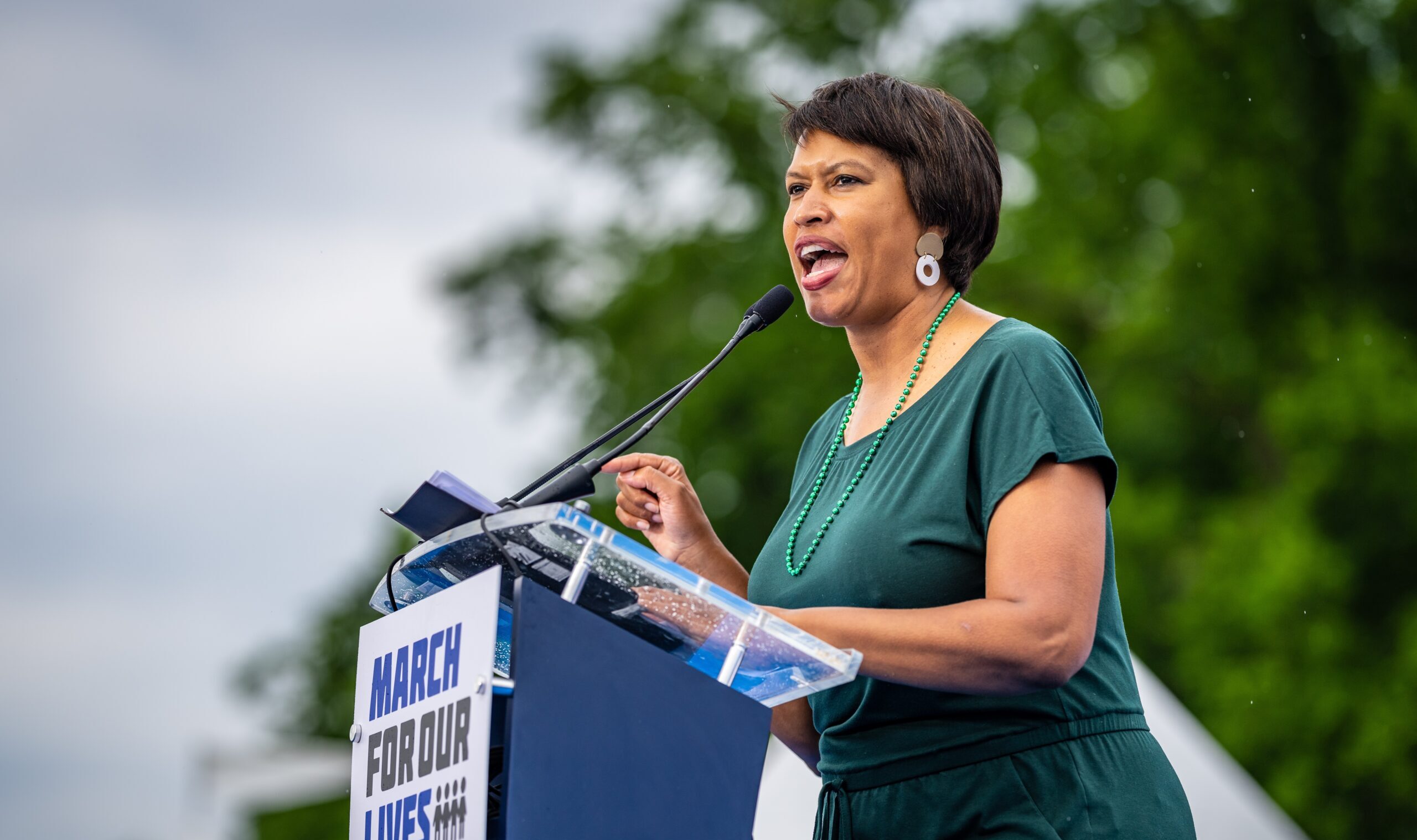Politics
D.C. home rule has been a catastrophe.

Nearly 30 years ago, with the District of Columbia facing a record deficit and the designation of its municipal bonds as “junk,” President Bill Clinton created a federal control that which suspended “home rule” for D.C. from 1995 to 2001.
In its place, Clinton appointed a five-member panel to oversee the District’s finances. The panel was granted the power to overrule decisions passed by then-Mayor Marion Barry and the D.C. City Council. Barry decried the power grab as a lawless “dictatorship,” but by 1998 the board, under the leadership of Alice Rivlin, who had served as Clinton OMB Director, had restored the District’s finances. Soon afterwards, it handed power back to recently elected Mayor Anthony Williams.
A control board: It is an idea whose time has come again, not least because by any metric the District of Columbia has suffered a precipitous decline in the decade since Muriel Bowser was elected mayor—the circumstances of which deserve a second look, including an examination of the role that was played in the election by the U.S. Attorney’s Office.
At the time of her election in 2014, the incumbent mayor—a longtime councilman from the 7th Ward, Vincent Gray—was campaigning for reelection under a cloud of suspicion emanating from corruption charges brought against his aides by the U.S. Attorney’s office. A week before the 2014 Democratic primary (which would inevitably decide the outcome in November), U.S. Attorney Ron Machen stood before reporters and insinuated that charges against Gray would be forthcoming.
Yet after the election, with Bowser safely in the mayor's office, the four-year investigation that tarnished Gray’s reputation was conveniently dropped. Needless to say, the role the U.S. attorney’s office played in putting its hand on the scale during the election has never been properly investigated.
That aside, 10 years of Bowser has been 10 too many.
In both 2021 and 2022, the District clocked in with over 200 homicides. Yet last year was among the most violent the city had seen in a generation. By the end of 2023, homicides climbed nearly 40 percent over the previous year, while robberies were up 66 percent, and car thefts and carjackings were both up well north of 100 percent. The former Metropolitan Police Department (MPD) chief Robert Contee has noted that “the average homicide suspect has been arrested eleven times prior to them committing a homicide.”
The Council’s answer to this was to pass a so-called “crime bill” that, according to a report published by the Heritage Foundation, would have “eliminated mandatory minimum penalties for every crime except first-degree murder; reduced the penalties for most crimes (including first-degree murder); and expanded the already hotly debated ability of violent felons to be released from prison early.”
As The American Conservative’s managing editor Jude Russo observed, “The only conclusion a reasonable person could draw is that the members of the D.C. City Council actively and passionately hate their constituents, the poorest of whom bear the brunt of the city’s descent into bare savagery.”
When not fighting crime, the Bowser administration has kept busy installing punitive speed traps and funds a parking enforcement regime that patrols the wealthier sections of Northwest with Stasi-like efficiency. You see, in Bowser’s Washington, some of the laws are enforced on some of the people some of the time; it simply depends which group finds itself in or out of favor with the rulers in the Wilson building. Fail to make a complete stop at a stop sign on a little-trafficked street in Northwest? Expect a ticket in the mail, ASAP. Jump a turnstile? Not a worry, have a nice day. Here illegally? No problem, we’re a “sanctuary city.” Would you care to vote in our elections?
Matters have been exacerbated by the behavior of the U.S. Attorney’s office under one Matthew Graves. Because D.C. is a federal district, the U.S. Attorney’s office effectively pulls double duty as the federal and local prosecuting attorney’s office. The results under Graves have been abysmal. According to MPD’s Contee, “We believe every person we arrest should be off the streets.” Yet Graves, busy prosecuting January 6 rioters under rather novel interpretations of Sarbanes-Oxley, clearly disagrees—his office has declined to prosecute 67 percent of cases brought to his office by the MPD. Even the Washington Post was obliged to admit,
a 67 percent declination rate is high. For example, in Wayne County, Mich., which includes Detroit, the prosecutor’s office reported declining 33 percent of its cases last year. Prosecutors in Philadelphia declined 4 percent and prosecutors in Cook County, Ill., which includes Chicago, declined 14 percent, according to data from those offices.
Subscribe Today
Get daily emails in your inbox
This summer Graves declined to prosecute 22-year-old Kayla Kenisha Brown, who killed the 55-year-old woman she carjacked from a hospital parking lot when she crashed into the building that houses—wait for it—the U.S. Attorney’s office.
Some in Congress have had enough. Last year, Congressmen Andy Ogles (R-TN), Matt Rosendale (R-MT) and Byron Donalds (R-FL) introduced a bill in the House that would repeal the D.C. Home Rule Act of 1973. Still more, D.C.’s governance problem has attracted the attention of the president-elect who, while on the campaign trail, repeatedly signaled his intent to deal with the mess Bowser and Graves have made. “We will take over the horribly run capital of our nation,” claimed Trump at a rally over the summer. “We’re going to take it away from the mayor. And again, that doesn’t make me popular there, but I have to say it.”
Mr. President-elect, it is time to keep that promise: fire Matthew Graves and reassert federal control over Bowser’s Washington.

 By The American Conservative (World News) | Created at 2024-11-14 05:10:12 | Updated at 2024-11-22 16:35:10
1 week ago
By The American Conservative (World News) | Created at 2024-11-14 05:10:12 | Updated at 2024-11-22 16:35:10
1 week ago








